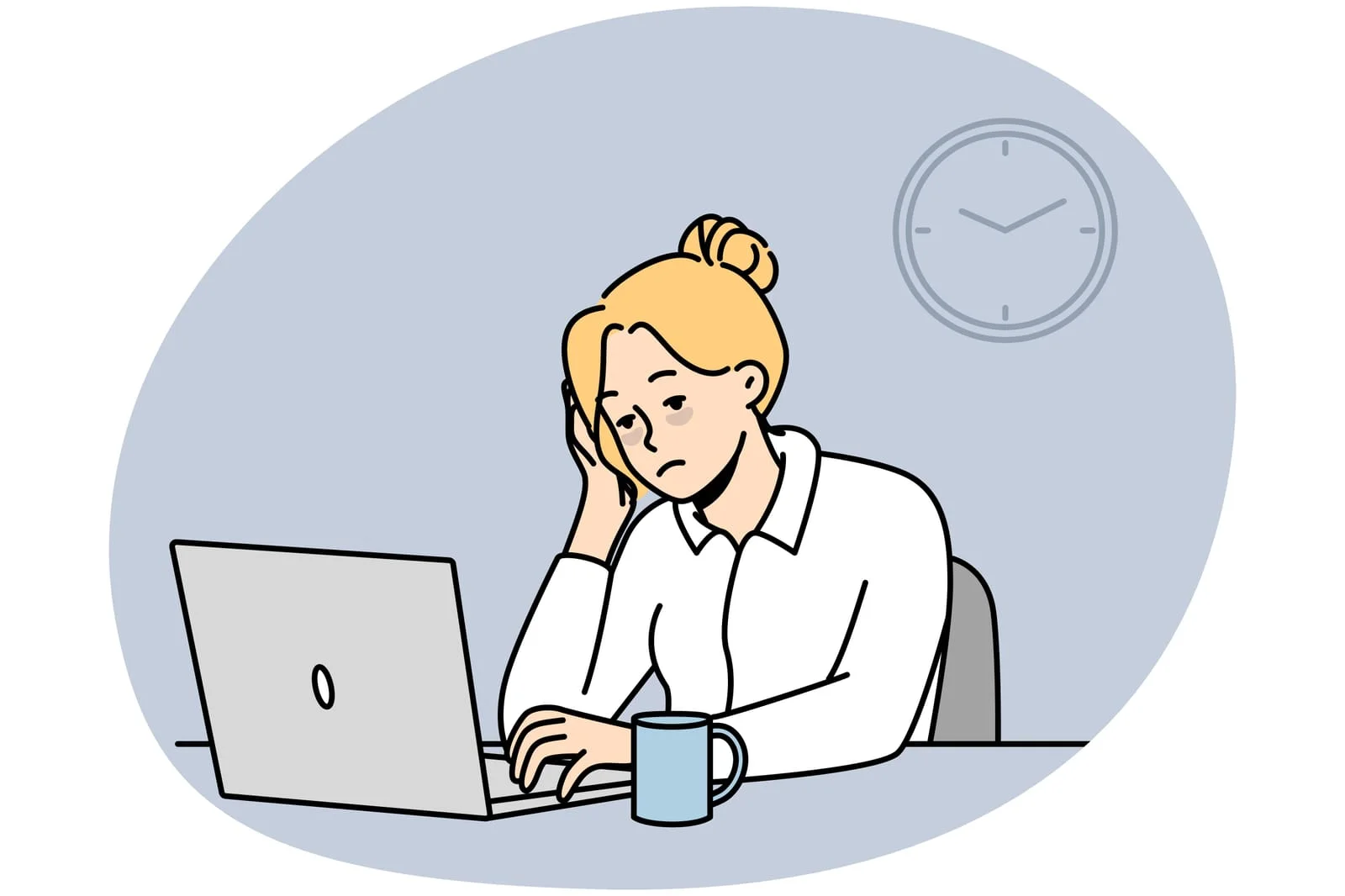This article will review ADHD and burnout, some of the causes, symptoms, and coping strategies you can employ to manage ADHD burnout symptoms.
Introduction
What is ADHD burnout? This refers to a state of stress that is common among those with ADHD. When people with ADHD are forced to sit and focus, stay on task, and remember things for lengthy periods of time, it can cause high stress, leading to what is called ADHD burnout. There are several causes, most of which have to do with ADHD symptoms and high stress, but thankfully, there are also coping skills that can be used to prevent the risk of burnout.
This cycle can have a serious impact on the daily lives of individuals grappling with Attention Deficit Hyperactivity Disorder (ADHD). By exploring the notion of ADHD burnout, we seek to provide a deeper appreciation of the unique challenges that individuals with ADHD encounter.

What is ADHD burnout?
ADHD burnout is a cycle. It starts when you commit to completing a task, something that might be simple at first. However, this task often requires you to overcome many of the basic ADHD symptoms, and this can cause great stress.
When your ADHD symptoms make it difficult to focus or be productive, this builds stress and leaves you feeling overwhelmed and exhausted.
This build-up of stress results in unhealthy coping strategies like self-medicating with drugs or alcohol, avoidance, and procrastination.
Eventually, this leads to withdrawal, where you withdraw from your commitment, giving up on the tasks you want to complete.
Causes and Triggers of ADHD and Burnout
ADHD and burnout are caused by unmanaged ADHD symptoms. External stress and unhealthy coping skills can exacerbate these causes.
ADHD symptoms
If you have symptoms of ADHD that aren’t being properly managed, it can make it very difficult for you to sit still, stay focused, or complete tasks. Masking symptoms or not being honest with others about the way ADHD impacts performance can both create additional stress, which makes burnout more likely.
Workload
When someone with ADHD struggles with a heavy workload and important, upcoming deadlines, they are more likely to be overwhelmed and find it difficult to stay on task or focus. Basic tasks like reading and writing become much more time-consuming, and this leads to ADHD burnout.
Overcommitment
Another trigger/case of ADHD burnout is trying to please everyone by over-committing. People with ADHD often take on too much responsibility when they are optimistic and full of energy, but that level of commitment might not reflect their ability to get things done.

Recognizing ADHD burnout symptoms
ADHD burnout symptoms can include the following:
- Feeling overwhelmed
- High levels of stress
- The desire to run away or escape
- Reduced productivity
- Poor workplace or school performance
- Feeling fatigued and exhausted most of the time
- Reduced confidence in your ability to be productive
- Low self-esteem, with feelings of incompetence
- Low motivation and energy
- Procrastination and avoidance of tasks, people, or personal obligations
- Taking more time than you would do so simple things
- Issues with mood and depressive symptoms
- Physical health problems like unexplained pain
- Changes to sleep or appetite
- Feeling resentment toward anyone who asks you to do things or needs things from you
-Impact on Daily Life
ADHD and burnout are serious issues that can have a detrimental impact on daily life.
Those who struggle with ADHD burnout symptoms can struggle with additional mental health disorders like depression or anxiety disorders. The symptoms can mimic depressive symptoms, causing you to feel hopeless, sad, and irritable. This creates a worsening, self-fueling cycle where:
- The emotional burden causes you to be irritable and apathetic
- Your low energy and reduced productivity cause you to fall behind on work
- Falling behind means you feel more stress, have reduced confidence in your abilities, and worsening burnout
- The worsening burnout makes it harder to catch up and increases your resentment toward those who ask things of you
Coping Strategies for ADHD Burnout
If you or someone close to you struggles with ADHD and burnout, there are coping strategies that can be employed to protect against it.
-Self-Care and Lifestyle Adjustments
Start by controlling your ADHD, whether that means getting professional therapy or just using self-help tips. Set realistic expectations for the commitments you make so that you don’t become frustrated or burned out.
Take time to adjust your lifestyle where necessary so that you have structure in your day and a routine that is most effective in accommodating your ADHD symptoms. This might include:
- Making a do-to list for each task
- Scheduling specific activities throughout the day
- Setting alarms as a reminder
- Using timers to adhere to set schedules throughout the day
- Mixing breaks and fun activities into your day
Work to maintain consistency. ADHD can cause many chaotic symptoms, and by having a regular routine with consistency, one that includes tasks throughout the day at specific times that are both fun and productive, you can hold yourself accountable and make sure that you prevent burnout by prioritizing self-care.
-Seeking Professional Help
The right type of therapy and medication, as well as changes to your work habits or building a routine, can make it easier to manage symptoms and reduce your chances of burnout. If you struggle with ADHD, don’t avoid getting the professional help you need.
-Preventing Recurrence
Preventing a recurrence of burnout takes time. It takes self-awareness, knowing that procrastination might be a symptom of your impulsivity, and having coping skills to prevent it.
- Knowing that you mask symptoms means taking time to explain how ADHD might interfere with productivity to a boss. This can help prevent a recurrence of tight deadlines.
- Knowing that you procrastinate as a form of impulsivity can help you avoid falling into that harmful coping mechanism in the future.
Summing up
ADHD burnout is a vicious cycle where individuals with ADHD take on too much or let their symptoms get in the way of productivity, leading to a cycle of stress, frustration, and withdrawal. It is important to recognize, address, and manage burnout if you are living with ADHD. Don’t be afraid to seek support and apply coping strategies to improve their quality of life.



